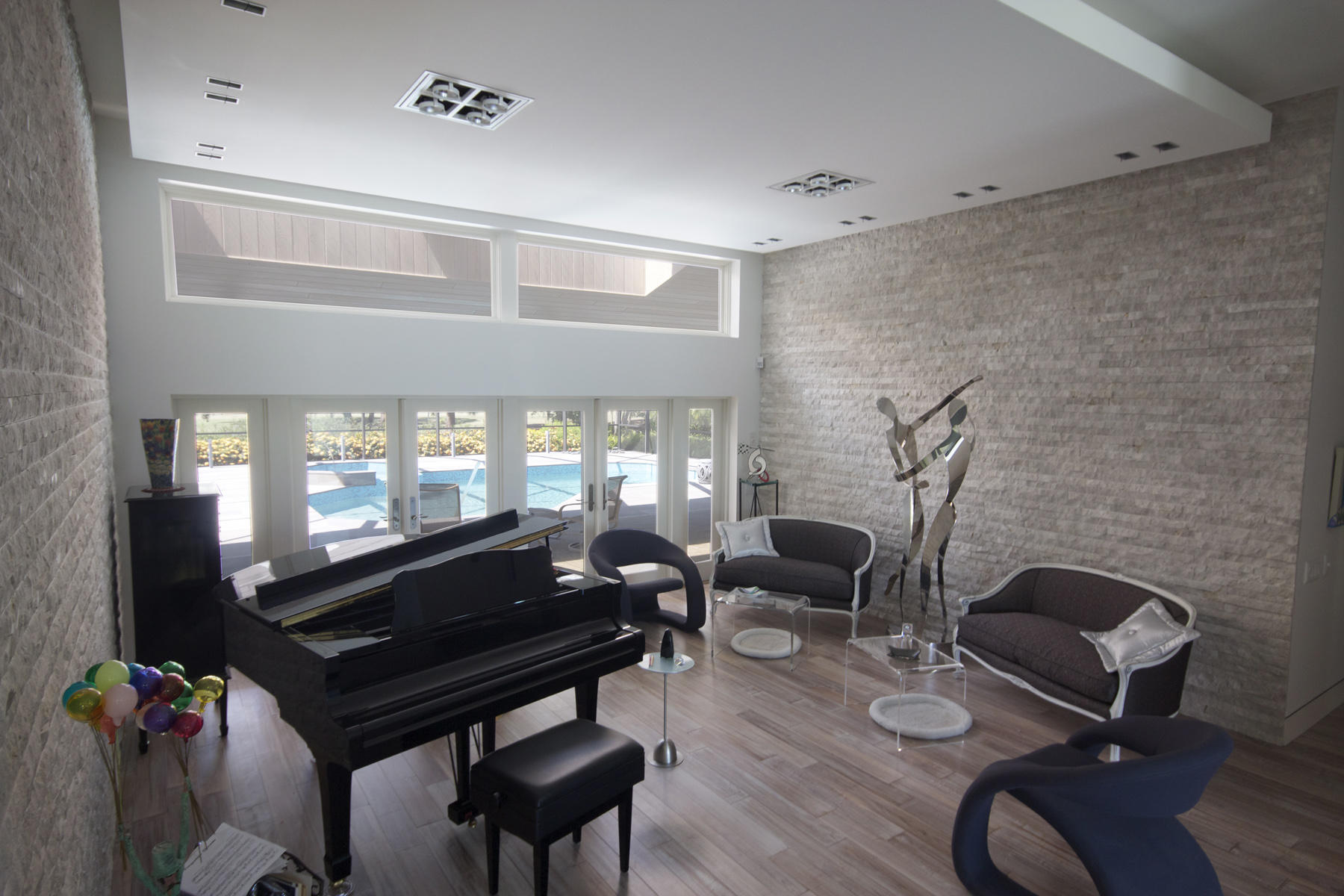Acoustic pianos come in two broad categories: the upright piano and the grand piano. Both of them have physical parts, including strings, pegs and hammers, all enclosed in metal and wooden frames. These instruments' sound varies, depending on their size. Here, we describe upright pianos' dimensions - their weight, width, height and more.
| 🎹 Piano type | 📏Height | ↔Width | 🔲Depth | 💪Weight |
|---|---|---|---|---|
| Spinet | 91 to 99 cm | 147 cm | 61-65 cm | 91-180 kg |
| Console | 102 to 111 cm | 147 cm | 52 to 67 cm | 159 to 204 kg |
| Studio | 112 - 120 cm | 147 cm | 61 cm | 181 to 227 kg |
| Professional | 121+ cm | 147 cm | 58 to 67 cm | 227 to 454 kg |

What Is an Upright Piano?
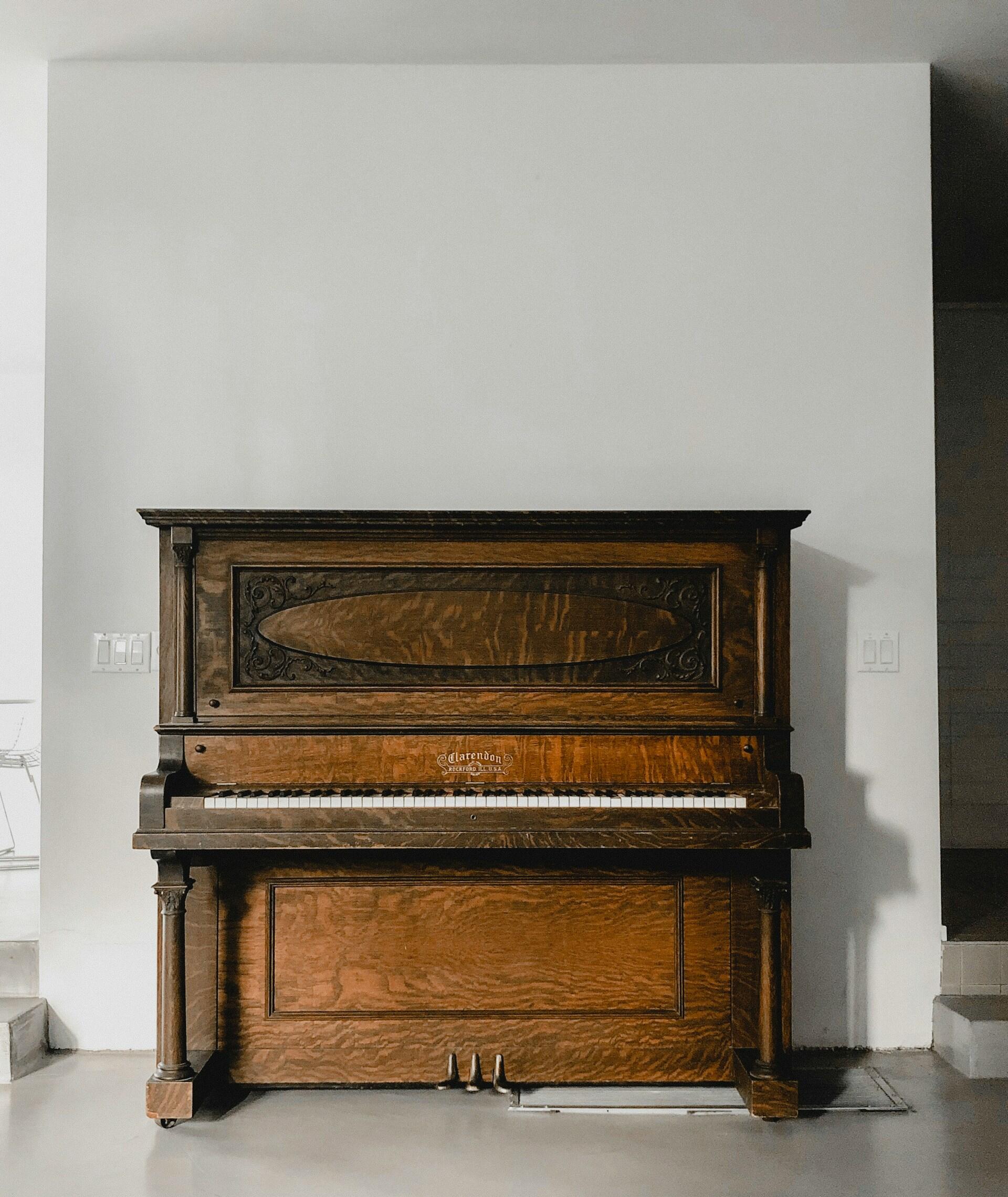
The upright piano, also called a vertical piano, gets its name because the strings that make the sound are held within an upright (or vertical) frame. It makes its sound when the instrument's hammers hit its strings.
Pianists activate the hammers when they press the keys on the piano's keyboard. The upright piano features pedals that change the notes' sound quality.
Players extend notes by pressing the sustain pedal, which moves the dampers away from the strings. This action allows the notes to continue even after the key has been released.
Those keys divide into 36 black keys (semitones) and 52 white keys. This breakdown gives the piano a broader range of expression, allowing players to coax soaring, emotion-provoking tones from their instruments. If you're taking online piano lessons, perhaps with your Superprof piano teacher, this information nugget likely featured in your first lesson.
Since the frame is upright, the strings are mounted vertically. This layout is quite functional if you have limited space since most upright pianos can be placed flush against a wall. Also, their boxy construction makes it a great display platform for precious objects like photos and heirlooms. Among upright pianos, we count four types:
The Spinet
- the smallest upright piano
- a unique, slightly tinny sound
- great for kids and beginner players
The Console
- direct keyboard-hammer action
- more responsive
- cleaner, truer sound
Studio
- full-size action
- more resonance and richer tone
- a sturdy, durable piano
Professional
- the tallest upright
- full sound quality
- a bit maintenance-intensive
Upright pianos typically sound better in smaller spaces. That's because the bigger the space, the more the sound must travel to reverberate. A large room or a hall is far too big for these smaller pianos to fill with music without electric amplification. That, in turn, may reduce or distort the instrument's natural sounds.
Before you buy an upright piano, you should benefit from Superprof's information regarding things to think about before reaching for your wallet. With that said, let's explore different types of upright pianos.
The Spinet
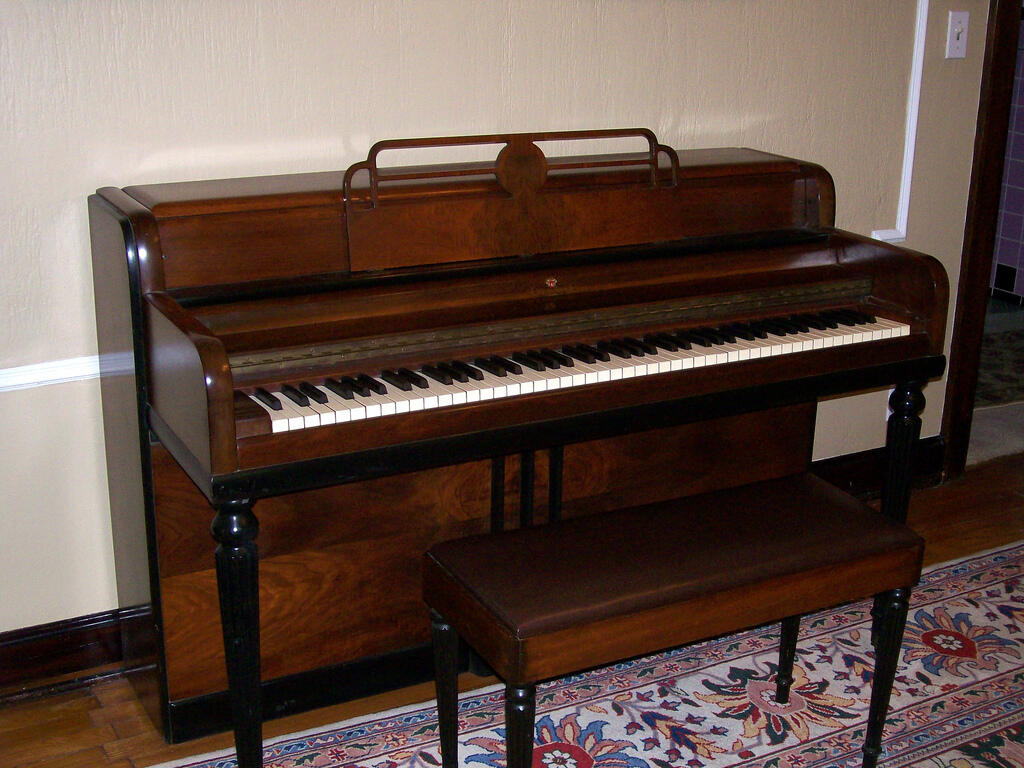
This is the smallest of the upright pianos. A spinet piano is great for children taking piano lessons Melbourne because it's smaller and cheaper. But it's equally good for any beginner piano player, especially for those who live in smaller spaces.
They are relatively inexpensive so, even if you or your child decides not to continue lessons, you won't be out that much money.
As the smallest upright, its top crests just a few centimetres above the keys. That means the mechanical action needed to produce sound is different from other uprights. Also, it suggests its dimensions are on the frugal side:
height
91 to 99 cm
width
147 cm
depth
61-65 cm
weight
91-180 kg
These pianos are recommended for anyone looking for a piano to put in a small room. However, finding one might be a challenge.
Production stopped in 1990.
The best any potential spinet buyer can hope for is a well-maintained used instrument.
On the downside, you might not care for the spinet's responsiveness or its sound, which tends to be a bit weak, and maybe a bit tinny. Before you choose the piano that may suit your space and budget the best, consider the next piano.

Console Piano
The console piano is a step up from the spinet. It's only a bit bigger (and more expensive) than the smallest upright piano. But the slightly larger price tag affords piano shoppers much more instrument for their money.
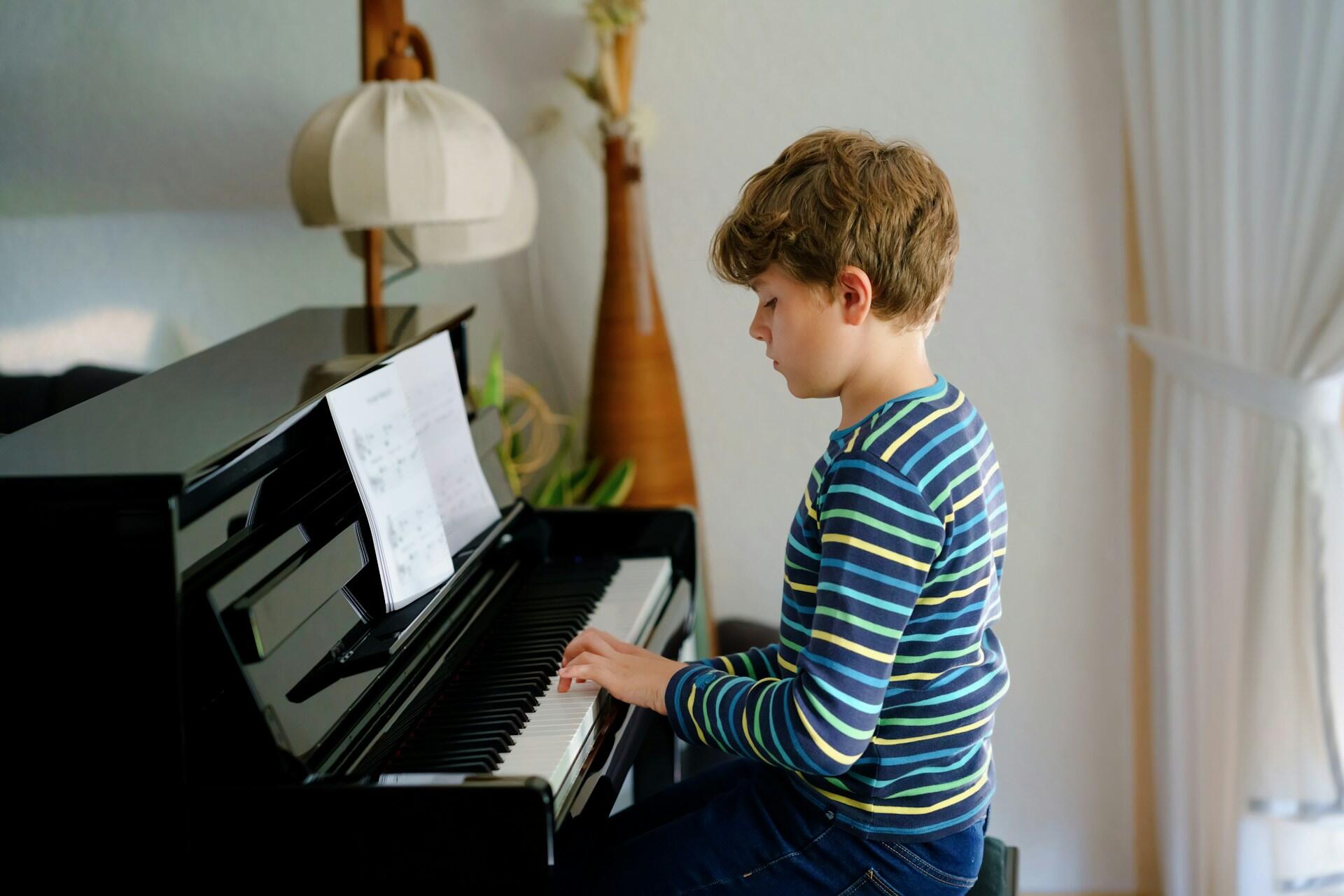
Teachers and pianists find the sound quality and the keys' feel and action of these types of pianos to be better for beginners. The action is much more responsive, as the sound-producing mechanism is closer to the original piano design.
This type of piano helps beginner players train their ear to the natural piano sound.
If the sound quality of the spinet bothers you but you're on a tight budget, the console piano might be your best choice.
As other pianos, the console is a complete instrument, despite its trim size. Still, it delivers sound quality to rival more expensive pianos, and offers the dynamic range to suit players' abilities. Specifically, the console piano size is:
height
102 to 111 cm
width
147 cm
depth
52 to 67 cm
weight
159 to 204 kg
Console pianos' compact mechanism ensures crisp action. Its shorter hammers make it more responsive. Its action sits above the keyboard, giving it a clearer sound than the spinet, whose action is below the keyboard. For availability, a broader selection, and playing experience, the console is a great entry-level piano.
Studio Piano
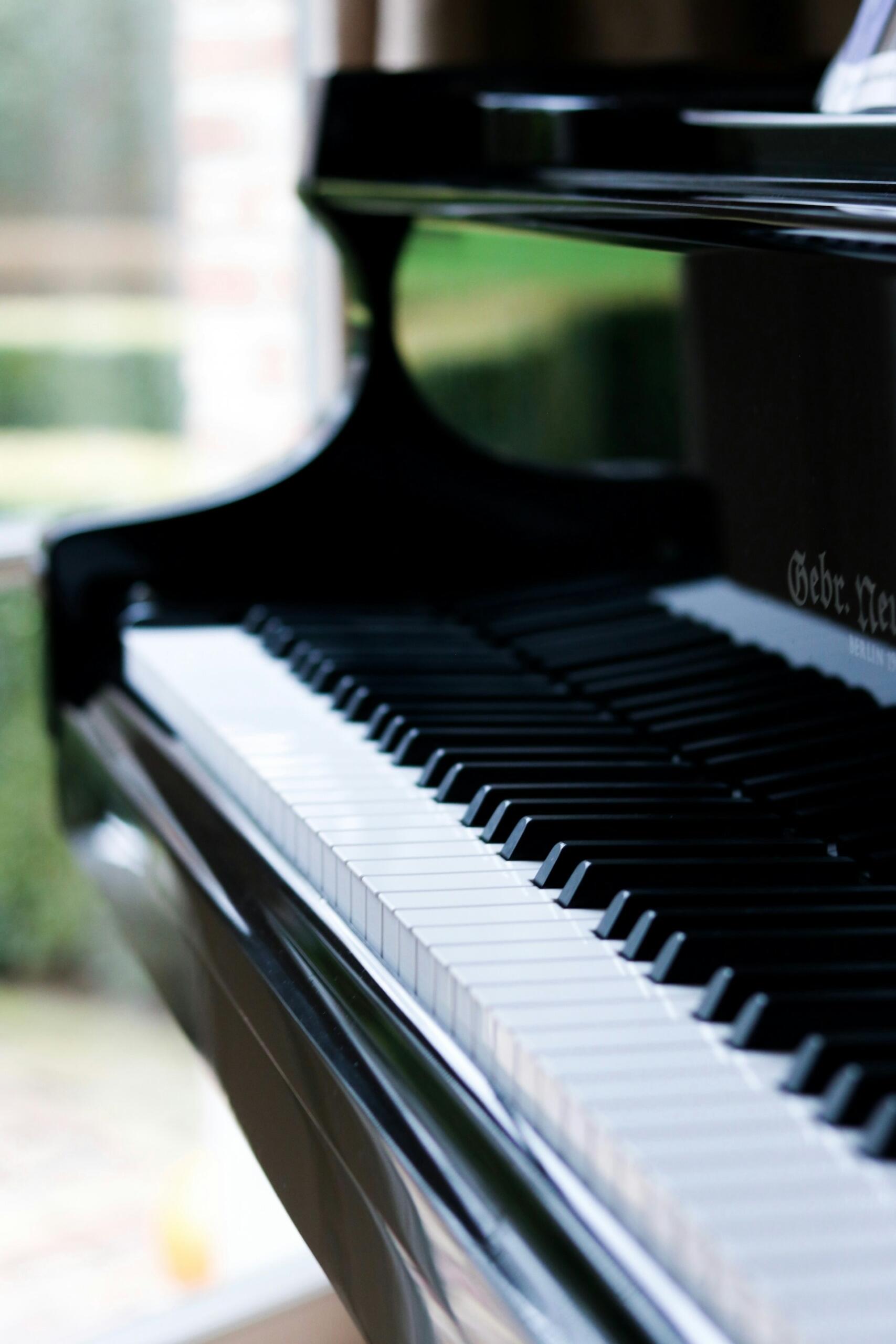
The studio piano brings us closer to the 'standard' playing experience. This instrument rivals the professional piano in size and playing quality. It's not quite as wide or quite as tall, but the soundboard is larger than the console piano's. That, of course, means longer strings, which deliver richer tonal quality.
Besides those features, the studio piano is a sturdy instrument. It was originally meant for institutional use in schools, churches and smaller venues. It needed to be tough to withstand high traffic and potential abuse.
This is the shortest possible piano body to accommodate full-sized action above the keyboard.
Higher-grade materials go into its construction, and craftsmanship tends to be better. Should you need to move your piano - to a different room in your home or another location altogether, this type is more likely to survive intact. To move your piano safely and efficiently, you need to know its dimensions:
height
112 to 120 cm
width
147 cm
depth
61 cm
weight
181 to 227 kg
You might suffer sticker shock at how much a piano costs and the spead between the lower and higher prices for console pianos. This range includes well-maintained used instruments, as well as new ones.
Brand matters a lot in pricing, too. Top names like Steinway, Yamaha and Kawai trade on their brand value. Later entries into the piano market, such as Samick and Pearl River, don't have as much recognition. For them, pricing relies on building quality instruments for a range of price points.
Upright Piano
There are eighty-eight keys on a piano and within that, an entire universe.
James Rhodes, electric piano pioneer.
This is the tallest of the upright “vertical” pianos, and the most common. However, labelling it 'the upright' is a tad generic; in piano circles, we call it the professional piano. This type of piano tends to produce the best sound of all the upright pianos.
Concert pianists and other professional players typically perform on a grand piano, an instrument whose strings run horizontally.
Recording studios prefer the upright piano model due to the space's limited size. Social venues like pubs and community centres love it for the same reasons. Many professional musicians write music on their home's upright piano and then play their composition in concert on a grand piano. That gives us a hint of this instrument's tonal and playing qualities.
height
121 cm or more
width
147 cm
depth
58 to 67 cm
weight
227 to 454 kg
This is a heavy instrument. Beware of such if you plan to set up your piano on an upper floor, particularly in an older building.
A Note on Sizing
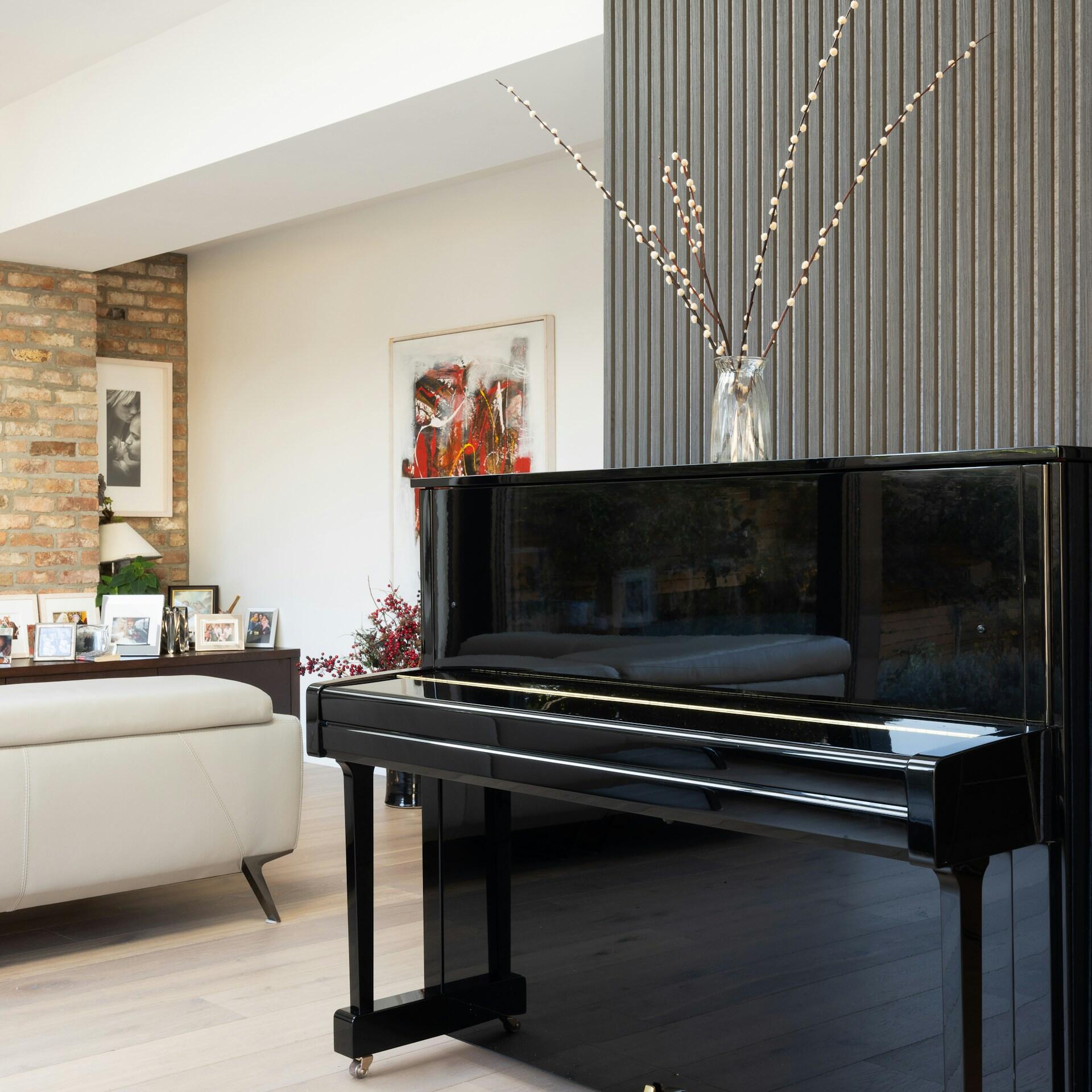
You may have noticed that all the pianos, except for the spinet, have 88 keys and arer 147 cm long. That's because the piano's body width revolves around the keyboard length.
As 88 keys are standard for the piano, the body must accommodate that length.
On upright piano weight variations: piano makers use a variety of materials to construct their instruments. A Steinway studio piano features denser wood and stronger metals, which add to the piano's weight (and cost). By contrast, 'lesser' brands might use lighter materials in their construction. That doesn't mean their pianos are any less efficient or satisfying to play.
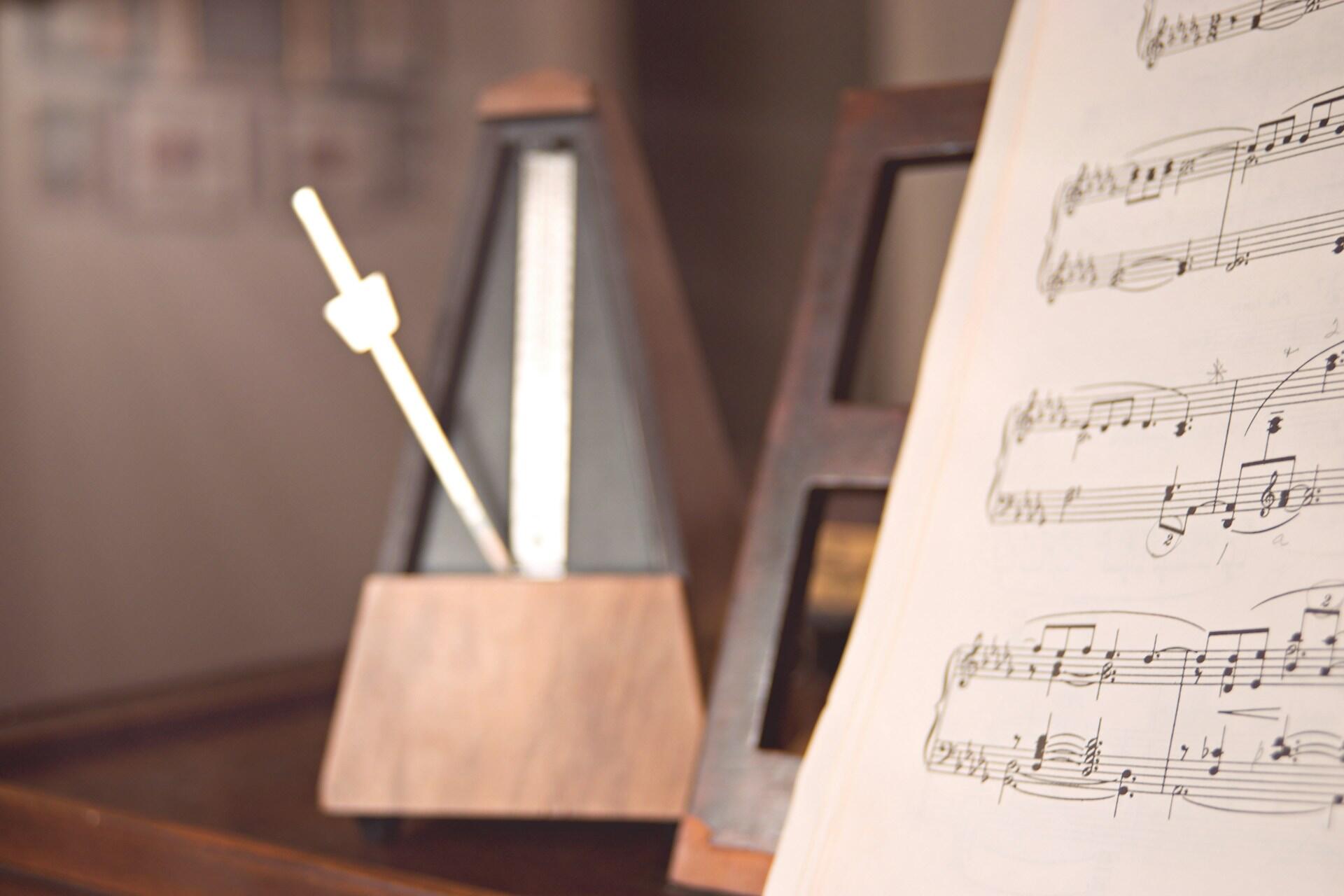
Upright Piano Accessories
As with all pianos, the accessories you need to protect your investment and play it well are many. Considering its size and weight, moving your piano would be a Herculean task without casters. While you're at it, consider paying extra for caster cups so you don't damage your floor.
Piano experts recommend setting your piano on a heat-resistant carpet. These mats prevent heat from travelling upward, protecting your piano's temperature-sensitive inner workings. Other piano accessories to consider include:
- piano locks to prevent unauthorised playing (if your piano is in a public place)
- a piano cover and polish
- fallboard locks to hold the fallboard open while playing
- a piano lamp for evening playing practice
These piano accessories won't add to your instrument's dimensions, but they will add to your costs. On the other hand, not protecting your investment will cost you more in the long run. These are the things you must consider when buying your first piano.
Summarise with AI:

